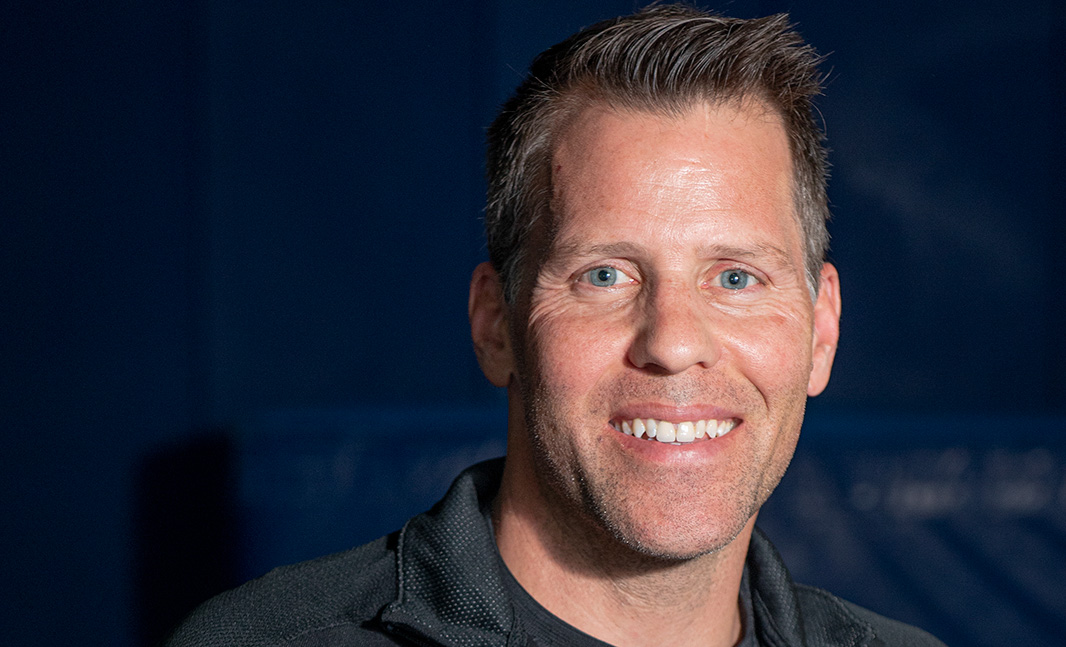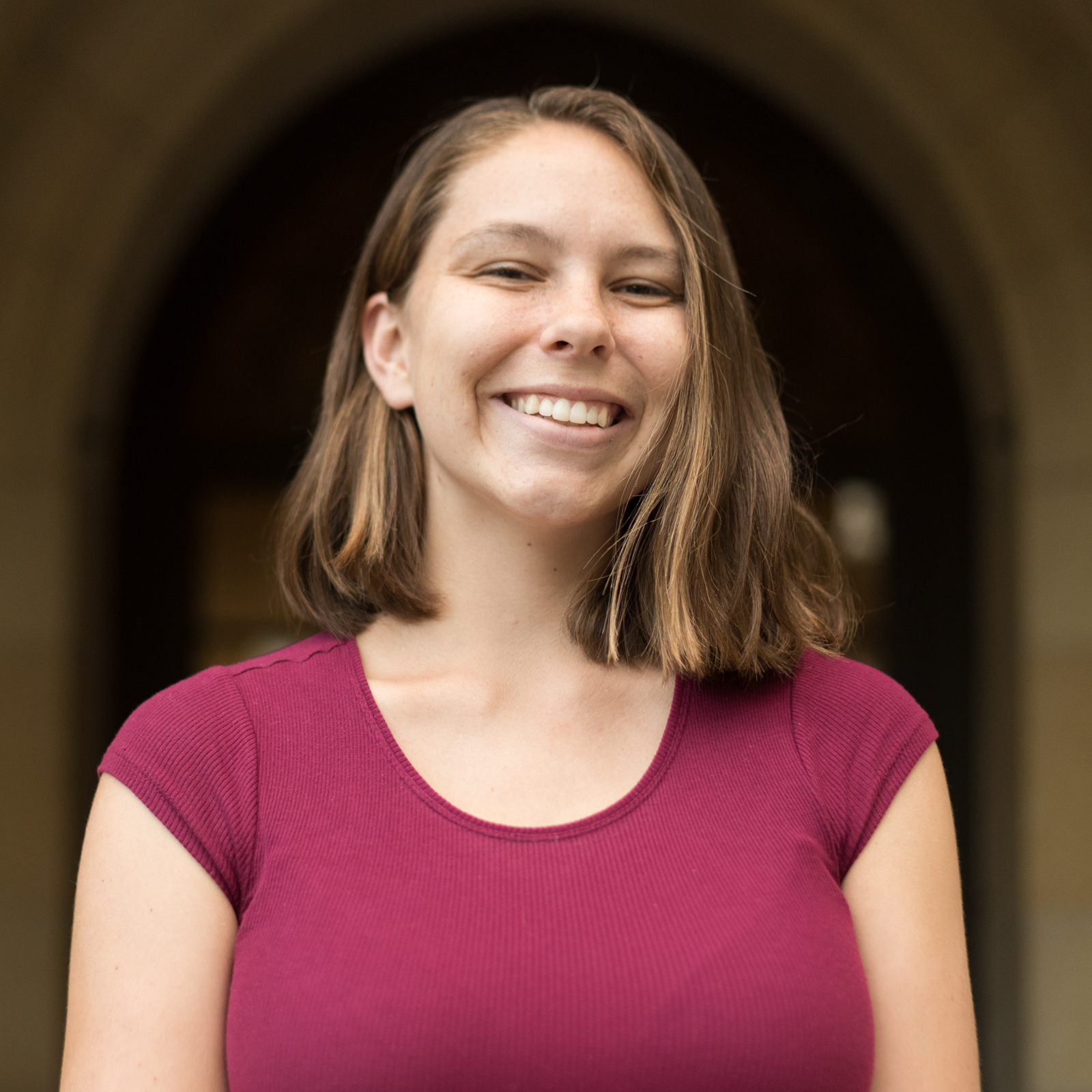Q&A: New gymnastics coach prepares team to flip into season, stick landing as a family

UCLA gymnastics head coach Chris Waller was named the successor of former head coach Valorie Kondos Field when she announced her retirement at the end of the 2019 season. He had spent the previous 17 years with the program as an assistant coach. (Tanmay Shankar/Assistant Photo editor)

By Coral Smith
Sept. 23, 2019 1:32 a.m.
Daily Bruin’s assistant Sports editor Coral Smith sat down with UCLA’s new gymnastics coach, Chris Waller, to discuss his long history with UCLA, taking over for former head coach Valorie Kondos Field and more.
Daily Bruin: What is your first memory of doing gymnastics?
Chris Waller: My first memory actually wasn’t all that great. I mean, my first memory of gymnastics was of watching Nadia Comăneci in 1976 get a 10, and I thought that was really cool, so I wanted to try it. And then I tried it, and I was a real little kid and it was scary, and I came back to it again following another one of my heroes and inspirations, Kurt Thomas, after he won a world championship, and that was when I was 10.
DB: You were a gymnast yourself at UCLA from 1987-1991, and went to the Olympics in 1992 as part of the U.S. National Team. How did being at UCLA help you on that path?
CW: Being in the environment, in this gym, actually, the expectation was that we were training to go to the Olympics and be at that Olympic level. That was my mindset, that was how we trained. I mean, we trained so many hours back then, it was like 32-35 hours a week, and it was a lot. So it was the culture and the environment. The standard was high, and we just believed that we were going to be going somewhere close to there and just went for it.
DB: What do you think your coaching style will be with this team?
CW: There’s kind of two things that are sort of polar opposites in a way. One, I like to plan out the training for the year. I like to think about what our strengths are and what our weaknesses are, and be very strategic about how to address those through a training regimen, even starting now, to improve our weaknesses for next year in April. So that’s one component, just planning it out. The other is I think of myself as a motivator. I just like to come in with a lot of high energy, and one of my most fulfilling things is getting athletes to believe that they can do stuff that they didn’t think they could do, basically to break through barriers, and I feel like if you can do that as a student-athlete, then that’s like a template for life.
DB: How were you approached by Kondos Field about the head coach position?
CW: To be honest, I simply applied for the job. I went through an application process no different than anybody else who wanted the job. I mean obviously over the years I’ve been here for so long, I often thought about being the head coach and what I would want to do, and took a lot of lessons from (Kondos Field), but I just applied.
DB: Did you have a conversation with her after you got hired?
CW: No, because after working together for so many years, we knew each other unbelievably well. And it was her program, but we developed a lot of the components of it side by side, so we pretty much knew exactly what the other person was thinking for the last 15 years. So no, there were just high-fives and hugs and congratulations, it was pretty cool. It was hard for her, and when I was finally named, she said, “Man, this is harder than I thought,” which I think we were both a bit surprised about because she seemed like she was ready to move on.
DB: Kondos Field had been the head coach for 29 years. How do you think you’ll be able to fill those shoes and continue her legacy?
CW: Well I’m not going to try to be Miss Val. I’ve learned a tremendous amount from her over the years. I believe in the things I believe in. I believe in investing in the student-athletes as students first, and helping them be strong, confident human beings, and the gymnastics builds because of that. I guess because I believe in what we’ve been doing for so many years, and I believe in the process and my philosophies, it makes me feel like it’s going to go pretty darn well, honestly. I think the biggest challenge isn’t going to be the gymnastics, per se, it’s more about helping build a coaching staff that is super tight and cohesive, that has a vibrant and strong message that is clearly understood. And the other big challenge is making sure that the team is really united, that there’s trust between everyone on the team, and that there’s trust between all the athletes and the coaches. To build that, you just have to keep diving in, and open your door and talk and listen.
DB: What has been your proudest moment as a coach so far?
CW: You know, I said earlier that I love helping people break through personal barriers, because those are templates for life, and so there’s been a lot of people who have done that, like Sadiqua Bynum and Alyssa Pritchett and Michelle Selesky, going way back. But helping athletes like that, and all those were walk-ons, who really didn’t have a shot at competing the first year they were here, and then by their senior year becoming not just leaders by putting points up on the board, but as people and as human beings, those are the coolest moments. Helping them transition from those people feeling small and insignificant on the team to thinking, “No, I belong here just as much as the Olympic champion standing next to me.”

DB: Your wife and both of your daughters have also attended UCLA. How much of a family is UCLA gymnastics?
CW: The environment in this gym, the way that all the young women help each other out, and there are no boundaries between how they can help each other out, whether it’s about school or personal life or academics or anything, … is very much like a family. The culture and environment within the team, it’s not just, “How come you’re not doing as good at gymnastics today?” It’s about all that other stuff that makes a family real – that culture feels like a family. And so when you’re a member of this team, if you really want to feel like you belong, you have to give yourself. You can’t feel a sense of true belonging unless you give yourself completely to that bigger thing, and that’s just like a family.
DB: Has anything changed for you now that you’re head coach?
CW: To be honest, it’s really fun being the head coach, it’s just a blast. I mean there’s a lot more pressure and we haven’t had a meet yet, but I really enjoy knowing that responsibility, in the end, is on my shoulders.
DB: Any concluding thoughts about the future of the team?
CW: If I was going to be out here giving advice to the team, it goes back to trust – trusting the coaches and each other, and trusting the process – because when there’s change and new leadership, there’s going to be so many thoughts about, “Oh, this is different, maybe that shouldn’t be like that, maybe it should be like this, it used to be this.” And the reality is there’s a lot of different ways to add up to the number nine, seven plus two or five plus four, so there are different ways to be amazing, and I think the No. 1 thing is just going to be believing in each other and blocking out other noise and the doubt. If we’re tight like a family like that, I just have such belief in the other coaches on staff. I believe in their ability to lead people and to do their job technically, 100%, and I have such belief in all the athletes on the team to be incredible people.


